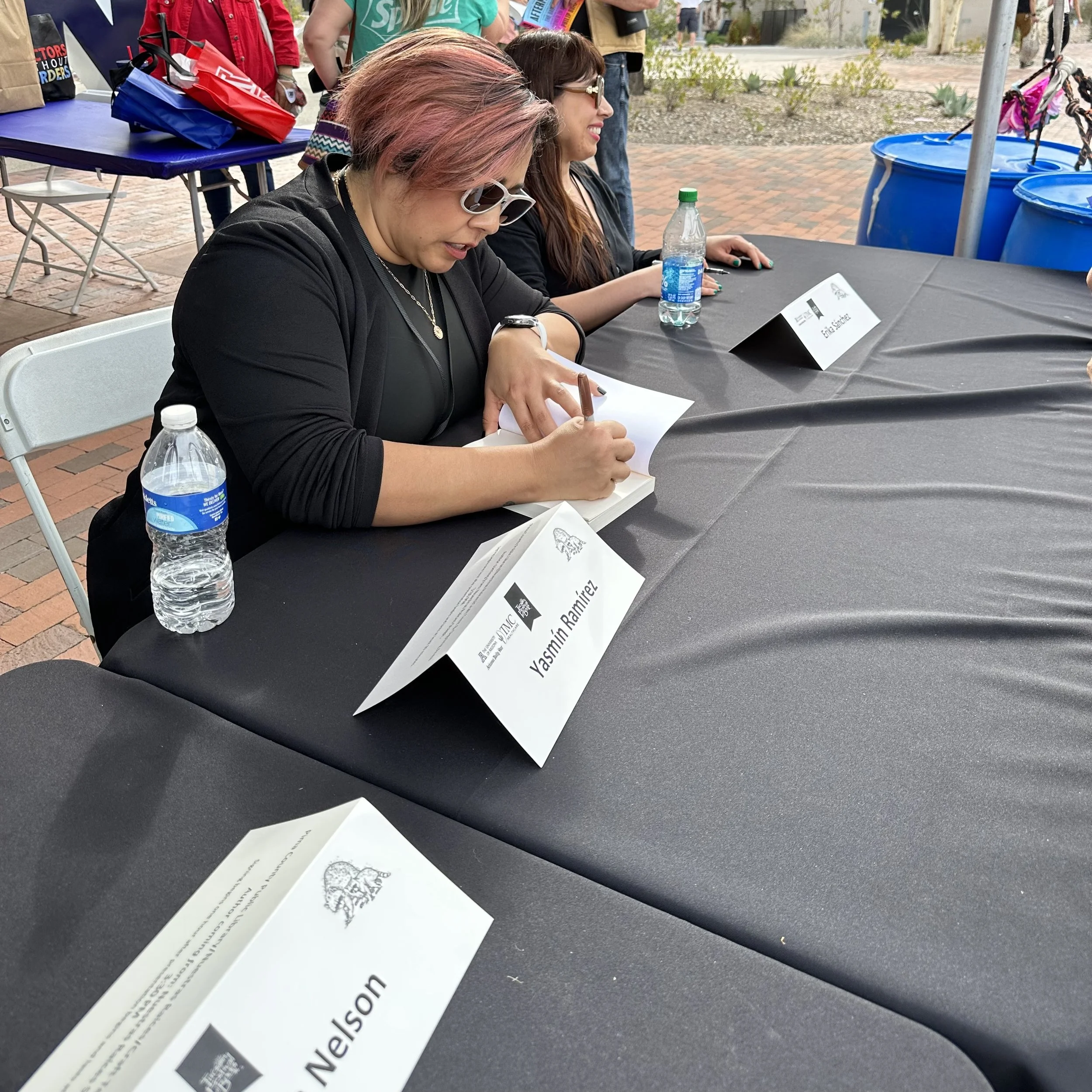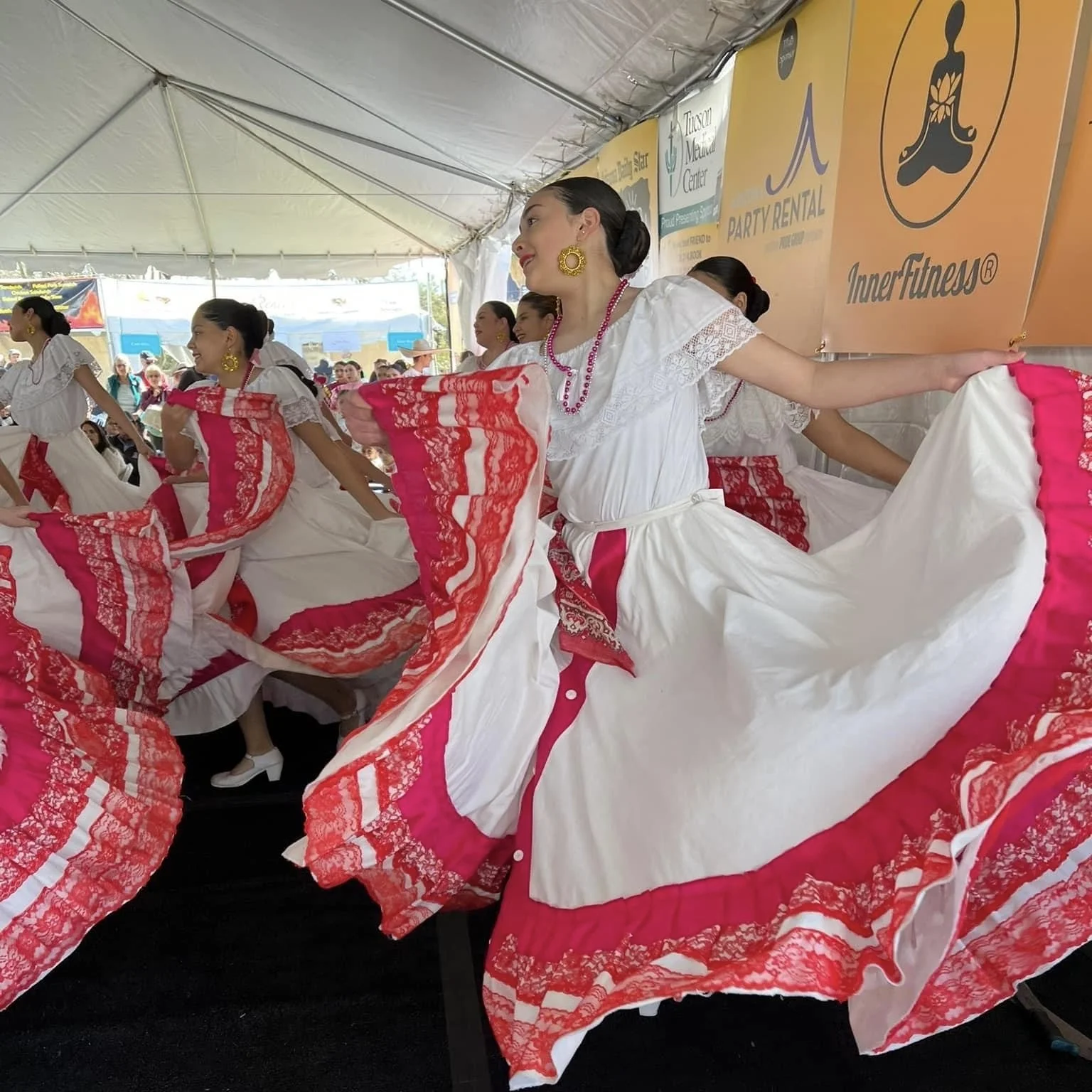Latinx culture takes center stage at the Tucson Festival of Books
Leer este artículo en Español
Two local dancers from Tucson’s Ballet Folklórico Tapatío waiting to perform at the main stage during the Tucson Festival of Books. Photo credit: Ballet Folklórico Tapatío.
The University of Arizona mall is a long, grassy pasillo where tens of thousands of students criss-cross while staring mostly on their phones on their way to class. For the last 14 years during Spring Break, while the students are away, the Mall has been the setting for the Tucson Festival of Books, one of the largest book fairs in the country, attracting nearly 100,000 people over just a few days.
But it wasn’t the crowd which caught our attention this year. It was the vibra. Everywhere you looked, raza was out and about enjoying a weekend of literacy, cultura, comida, y sol. The Mall was abuzz with conversaciones en Español and the sounds of violines y trompetas y guitarras y gritos. The taca-taca-taca-taca-taca-taca-taca of Folklorico dancers echoed through the air. Vestidos of all colores twirled round and round. It was the perfect backdrop for storytelling.
Como de costumbre, Borderlands author Luis Alberto Urrea was at TFOB this year. He and more than two dozen Latinx and Chicanx authors spoke at various author panels at the Pima County Public Library’s Nuestras Raíces tent. They discussed their works and their process. This year attendees also got a special treat as Tucson’s own, Linda Ronstadt returned to her desert hometown to talk about her new memoir, Feels Like Home. Tucson’s first Latina mayor, Regina Romero was also in attendance.
Yasmín Ramirez (left) signs a copy of her first book, "¡Ándale, Prieta!" outside the Nuestras Raíces tent. Ramirez is an Associate Professor of English, Creative Writing, and Chicanx Literature at El Paso Community College.
Neto Portillo moderates a panel with poet Cynthia Guardo and novelist Alejandro Varela. Photo credit: Neto Portillo
Photo credit: Ballet Folklórico Tapatío.
Nuestras Raíces celebrates the culture and linguistic heritage of the Latinx and Spanish-speaking communities in Pima County. The group first started as a Spanish services committee and has been doing important work around outreach and representation for more than 40 years. Putting on author talks in the community throughout the year is their superpower, and the writer’s tent at TFOB is their signature event. Nuestras Raíces has put together a list of books by all the Latinx authors at the festival and you can find it here.



